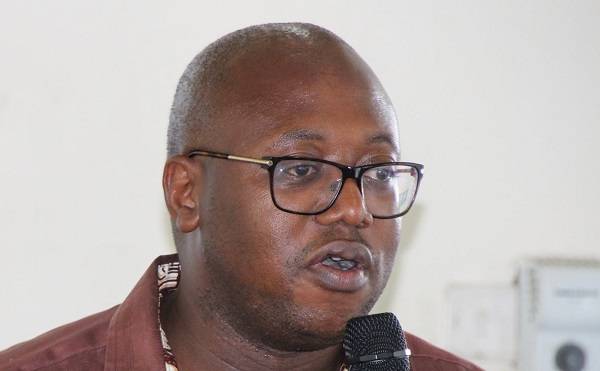The Director of Programmes and Policy Engagement at the Centre for Democratic Development-Ghana (CDD-Ghana), Dr Kojo Pumpuni Asante, has expressed grave concern about the deep-seated practice of vote-buying and selling in Ghana’s political landscape.
The CDD Fellow, who’s perturbed about the effect of this canker on Ghana’s fledgling democracy, wants the state to be more serious in dealing with the problem by instituting severe sanctions against both the buyers and the sellers of the votes.
Vote-buying and selling largely play out in internal party elections in Ghana. In many cases, the givers have often claimed that these monies are given to delegates to cater for food and transportation costs and not to induce voters.
These allegations resurfaced in the recent parliamentary and presidential primaries of the two major parties. Political observers are concerned about the quality of leaders selected through these party structures to serve at the national level.
In the latest of such cases, the Office of the Special Prosecutor, which is already investigating some of these allegations against public officials is reported to have arrested the Chief Executive of the National Entrepreneurship and Innovation Programme (NEIP), Kofi Ofosu Nkansah for allegedly distributing money to delegates ahead of the New Patriotic Party’s Parliamentary primaries in constituencies where the party has sitting MPs.
Speaking on JoyNews’ PM Express on Wednesday, Dr Kojo Pumpuni Asante said dealing with the canker by targeting only the buyers will not solve it.
He said it is high time both the buyers and the sellers of votes are jailed if the country is to eradicate the canker.
“I think that the sooner we jail both the sellers and the buyers of votes the better it will be for us. Everybody can tell now that people just do it with impunity. They do it in the open, there are a lot of willing takers, people willing to sell their votes, and I think if we don’t stop this behaviour we’re continuously trying to de-legitimize the democratic process” he noted.
The parties are beginning to see the effects of that because when money becomes the ultimate determinant of who represents people in communities, the essence of any party will be completely lost, and then you cannot begin to talk about multi-party democracy. And we are seeing this continuous breakdown of that trust in our institutions and our processes.”
He added, “When something is tainted and corrupted, it’s obvious. So, we have to attack it with all the aggression that we need. I am hoping that at least somebody gets jailed; not just the political actors but also the people who are receiving the money; because if that doesn’t happen then people will still think that there’s no accountability; you can do it with impunity and get away.
The CDD Fellow warned that this practice cannot be normalized since it could destroy Ghana’s democracy.
“This is a very serious problem and it should not be normalized. Once you do that, there’s no end to this process. You will completely break down this democracy that we are already struggling with completely.
While acknowledging the efforts made by the Office of the Special Prosecutor to nip the practice in the bud, he also expressed worry about the impediments the institution faces in tackling such cases.
In some of the cases, when witnesses were asked to bring supporting evidence it became difficult, similar to cases where when the prosecution comes in, then people start to say different things that they didn’t mean to say this or that.”


